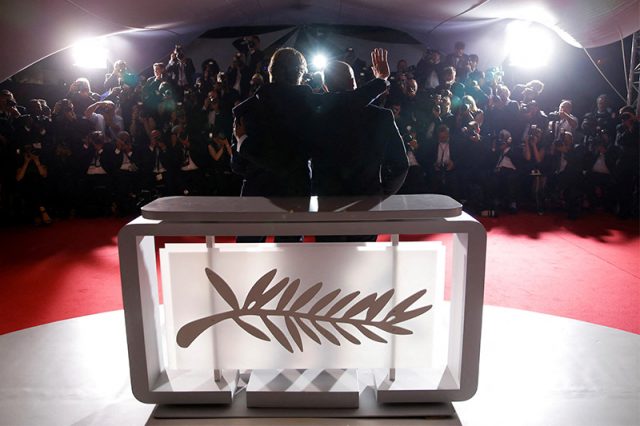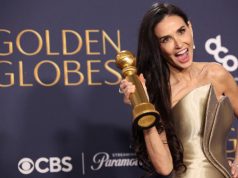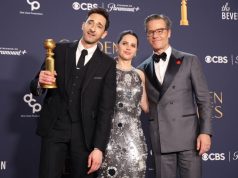
BERLIN — The Cannes Film Festival will bring together the industry’s biggest luminaries in southern France next week to celebrate cinema, with Hollywood stars including George Lucas, Meryl Streep and Demi Moore expected to grace the red carpet.
This year’s festival is the 77th edition of the glitzy event on the French Riviera packed full of premieres, star-studded press conferences and glamorous parties.
Below are some facts about the Cannes Film Festival and this year’s contenders.
What is the Cannes Film Festival and why is it celebrated?
Cannes is the world’s biggest film festival, first conceived in 1939 as an alternative to the then-fascist-influenced Venice Film Festival.
It has been held annually since 1946 except in 1948 and 1950, when it was cancelled due to lack of funds.
The festival is known for its carefully selected program of films that have gone on to Oscar glory or launched the careers of directors like Quentin Tarantino.
Running alongside it is the world’s biggest film market, drawing more than 14,000 film industry professionals annually.
When is Cannes?
This year’s festival begins on May 14 with the French-language comedy “The Second Act” by director Quentin Dupieux starring Lea Seydoux and Vincent London. The festival runs until May 25.
What movies have been selected for Cannes 2024?
There are several categories making up the official selection of films shown, the top being the “in competition” movies vying for the Palme d’Or prize.
This year’s 22 contenders are:
“The Apprentice” by Ali Abbasi
“Motel Destino” by Karim Ainouz
“Bird” by Andrea Arnold
“Emilia Perez” by Jacques Audiard
“Anora” by Sean Baker
“Megalopolis” by Francis Ford Coppola
“The Shrouds” by David Cronenberg
“The Substance” by Coralie Fargeat
“Grand Tour” by Miguel Gomes
“La Plus Precieuse Des Marchandises” (“The Most Precious of Cargoes”) by Michel Hazanavicius
“Marcello Mio” by Christophe Honore
“Feng Liu Yi Dai” (“Caught By The Tides”) by Jia Zhang-Ke
“All We Imagine As Light” by Payal Kapadia
“Kinds Of Kindness” by Yorgos Lanthimos
“L’amour Ouf” (“Beating Hearts”) by Gilles Lellouche
“Trei Kilometri Pana La Capatul Lumii” (“Three Kilometres to the End of the World”) by Emanuel Parvu
“The Seed Of The Sacred Fig” by Mohammad Rasoulof
“Diamant Brut” (“Wild Diamond”) by Agathe Riedinger
“Oh Canada” by Paul Schrader
“Limonov – The Ballad” by Kirill Serebrennikov
“Parthenope” by Paolo Sorrentino
“Pigen Med Nalen” (“The Girl With The Needle”) by Magnus Von Horn
Films screening out of competition include George Miller’s “Furiosa: A Mad Max Saga,” starring Anya Taylor-Joy and Chris Hemsworth, and Kevin Costner’s “Horizon, An American Saga.”
There are also categories for short films and the art-house film-focused “Un Certain Regard” sidebar section.
What are the prizes and who has won in the past?
Cannes’ top prize is the Palme d’Or, or Golden Palm, whose past winners include “Taxi Driver”, “Apocalypse Now”, “Pulp Fiction”, “The Pianist” and “Parasite”.
Jane Campion became the first female director to win in 1993 with “The Piano,” followed by a nearly three-decade gap until Julia Ducournau received the award for “Titane” in 2021.
Justine Triet became only the third female director to take the prize last year with “Anatomy of a Fall”.
There is also an honorary Palme d’Or, which is awarded in recognition of notable bodies of work, with past recipients including Harrison Ford, Jane Fonda and Clint Eastwood.
There are two honorary winners this year: George Lucas of “Star Wars” and “Indiana Jones” fame, and Japanese animation legend Studio Ghibli, the first group to receive the prize.
Other awards include the Grand Prix, jury prize, best director, best actor, best actress, best screenplay and best short film.
— Reporting by Miranda Murray; Editing by Friederike Heine and Emelia Sithole-Matarise









